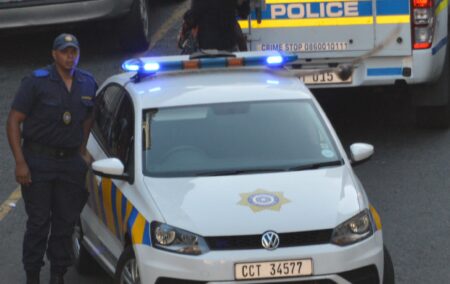For far too long, South Africans have been terrorised by criminals. We are all victims of crime, and we all know people who have senselessly lost their lives at the hands of criminals.
In the second paper in the #WhatSACanBe series, we dive into law and order, something sorely missing in the country. With drug dens being uncovered and raids on illegal military camps taking South Africa by (relative) surprise, the lawlessness that reigns free is as widespread as the gaps in the fence on the South Africa-Zimbabwe border.
One of the problems that South Africa has with policing is the sometimes-antagonistic relationship that exists between the national police and the various municipal police services.
As far back as 2001, researchers at the Institute of Security Studies warned of the challenges that lay ahead for the relationship between the South African Police Service and municipal police services.
Today, the challenges remain, as crime has steadily worsened and the relationship between SAPS and municipal law enforcement continues to be strained.
The Institute of Race Relations’s #WhatSACanBe solution is simple, and can be achieved without the political hot potato of a constitutional amendment. It includes:
Reviewing and reassessing the national policing framework, decentralising policing to provinces, strengthening municipal policing, and bolstering private security regulations with peace officer status.
Restoring trust in the police service is the only way the Government of National Unity can hope to have any success against criminals. Heartbreaking cases like this Phillipi man entrusted to the police cause near-irreparable harm to the collective relationship. How will the family ever trust the police again? Could the police do the same to our family members?
Not only skop, skiet, en donner
Restoring trust in law enforcement is more than just adding people (and weapons) to the force. It includes quality training and ensuring top-notch people skills. The state has a nominal monopoly on the use of force. But decades of poor leadership and crisis have rendered it paralysed, replaced by an army of private security organisations that have become increasingly militarised as crime has increased. In turn, the state has used its regulatory power to impose foreign ownership restrictions on private security and mandated co-operation to ‘prevent crime.’ The government has allowed both crime and crime prevention to become a successful business model.
Millions of South Africans have been let down by law enforcement. The failure of police not only affects families, but also affects businesses who are hesitant to invest their resources into a country where their goods and services can be stolen with impunity.
Reassessing the Policing Framework
In a presentation on frameworks, the SAPS noted the words of former President Mandela:
“We must take the war to the criminals and no longer allow the situation in which we are mere sitting ducks of those in our society who, for whatever reason, are bent to engage in criminal and anti-social activities.”
Plans upon plans are all good and well, but if there is no political will, then nothing will change.
The new Police Minister, Senzo Mchunu, has congratulated police for two major drug busts and the raid of a White River military camp as well as successful shoot-outs with criminals in KwaZulu-Natal, in what appears to be a revitalised police service ready to tackle criminals head-on.
Here’s where civil society and the broader public can play a role. One month into government – and with a National Dialogue on the horizon – gives us the perfect opportunity to help shape the policy agenda for the seventh administration.
Regaining trust, protecting lives
Harnessing public goodwill for the GNU into the change we want to see is the essence of the #WhatSACanBe series. Law and order are crucial to showing South Africans the upside to a sound rule of law, where criminals get the punishment they deserve and victims are supported.
If I walk out the door today, I want to feel safe. Millions of South Africans travel every day, trying to avoid becoming another statistic. SAPS and municipal police officers shouldn’t be so skaars soos hoendertande.
The City of Cape Town knows this. It’s why they’ve deployed more law enforcement officers in three CBDs across the city. In a recent council speech, the Mayor of Cape Town, Geordin Hill-Lewis, noted the Minister of Police’s enthusiasm to allow municipal police services the power of criminal investigations. This is an important step to fighting crime and giving ratepayers value-for-money.
These past few weeks of crime-fighting and the openness of the government to discuss reforms have put us firmly on the journey to #WhatSACanBe by regaining public trust and protecting lives.
Read the second paper on Law and Order here.
[Image: Discott, https://commons.wikimedia.org/w/index.php?curid=85402763]
If you like what you have just read, support the Daily Friend

